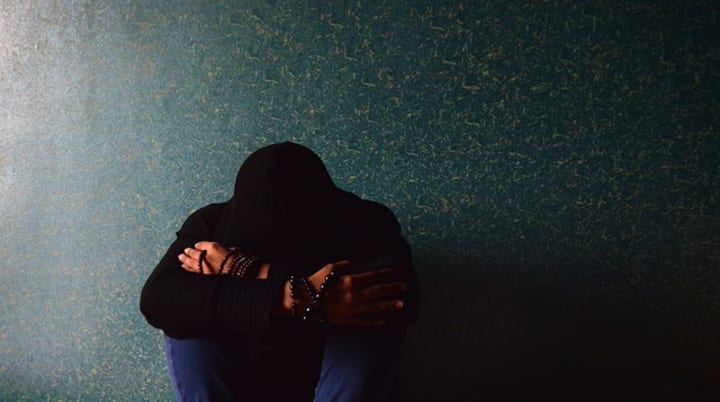
I am concerned.
Well, I’ll back up a moment and talk you through that. There are a couple of issues that ebb and flow as “hot topics” and neither has anything to do with the other. The First Amendment is one. Eating disorders—specifically anorexia nervosa (AN) and bulimia nervosa (BN)—is the other. I say “eating” disorders, but I think they are more aptly put into the category of “anxiety” disorders. But, that’s not really the topic right now. The topic, what has me concerned, is this: There are websites—quite a number of them, in fact—that glorify these disorders.
Pro-Ana (anorexia) and Pro-Mia (bulimia) websites have message boards where tips and advice are shared, not on how to overcome the disorder, but how to hide it better and be more efficient at it.
For obvious reasons, I won’t be linking to any of these sites, as I normally would.

One reason being that we don't need to encourage this.
Why do these sites exist?
Let’s turn to our friends over at ANAD, the National Association of Anorexia Nervosa and Associated Disorders, Inc. (what a mouthful), to get a little insight into this. According to ANAD:
- ~ 30 million people, regardless of age or gender, suffer from an eating disorder in the US
- Eating disorders have the highest mortality rate of any mental illness (within the subset of eating disorders, AN has the highest mortality rate)
- In a study following active duty military personnel over time, 5.5 percent of women and four percent of men had an eating disorder at the beginning of the study, and within just a few years of continued service, 3.3 percent more women and 2.6 percent more men developed an eating disorder
- Nine percent of American women suffer from AN in their lifetime
- One in five AN deaths is by suicide
- Five percent of American women suffer from BN in their lifetime
This is maybe one third of the stats you can find on ANAD’s site. 30 million people in the US. That’s 9.2 percent of the US population. That’s 2,925,000 women suffering from AN and 4,875,000 from BN. If 26 percent of females and (according to ANRED.com) 10 percent of males suffer from AN or BN, a businessman would tell you that you’re looking at a ripe market. That’s one reason these sites exist. The market is so ripe, in fact, that one company has struck proverbial oil.
So, we know there is an audience for sites like these, but is that enough? Yes, and no. Sufferers of AN and BN are stigmatized, and none more so than men. To whom do you turn if you have a problem—and you know you have a problem—but you know you’ll be made to feel as though you’re worth less (if not exactly worthless) if you seek help. What will people think of you? That you’re weak? That you’re self-centered? That you value too greatly how others view you? That you can be manipulated by the media, or criticism of your appearance, or whatever the case may be? These feelings of worthlessness, of loneliness, of weakness, of anxiety only increase at the thought of saying something about your problem to someone.
Remember, we're talking about anxiety disorder here. We're talking about mental illness. These are the kinds of self-deprecating thoughts that ride the coattails of such illnesses.
With Pro-Ana and Pro-Mia sites, these individuals have a community. And it’s a community reinforcing the behavior of the disorders.
Why are these sites allowed?

I have no semi-humorous caption for this. Let's just go with, "Don't be a dick to people who need help."
This is my real question. I realize closely monitoring the Internet is like toilet training a cat—possible, maybe worth it, but definitely time, energy, and sanity consuming. Still, you would think websites that aid people in harming themselves, and which could potentially be considered aiding in suicide, would be… you know… not legal. In the same way starving someone is not legal. In the same way assisted suicide is not legal.
I know, I just know, that if Pro-Ana and Pro-Mia sites started to be monitored and subsequently shut down, someone would cry, “You’re violating my First Amendment rights!” That's just the world today. But, would that be true? According to First Amendment Center and Newseum Institute, there are essentially nine categories not protected by the First Amendment:
- Obscenity
- Fighting words
- Defamation (including libel and slander)
- Child pornography
- Perjury
- Blackmail
- Incitement to imminent lawless action
- True threats
- Solicitations to commit crimes
According to Deb McAlister-Holland, “Chat room conversations that [encourage] suicide [have been] denied First Amendment protection.” That, and also perhaps a bit of common sense, leads me to believe that Pro-Ana and Pro-Mia sites—including forums and chats on such sites—wouldn’t be protected. So, why are they still around, and why are there so many?
While rhetoric on such sites may not be the same as, “Go kill yourself,” in some instances, it’s very close.

About the Creator
RJ Plant
RJ Plant is a Birmingham, AL, native currently terrorizing Williamsburg, VA. She writes sci-fi and fantasy with thriller elements and has a fantastic library, as well as a strange love for science. Want more? Visit rachaelplant.com.






Comments
There are no comments for this story
Be the first to respond and start the conversation.